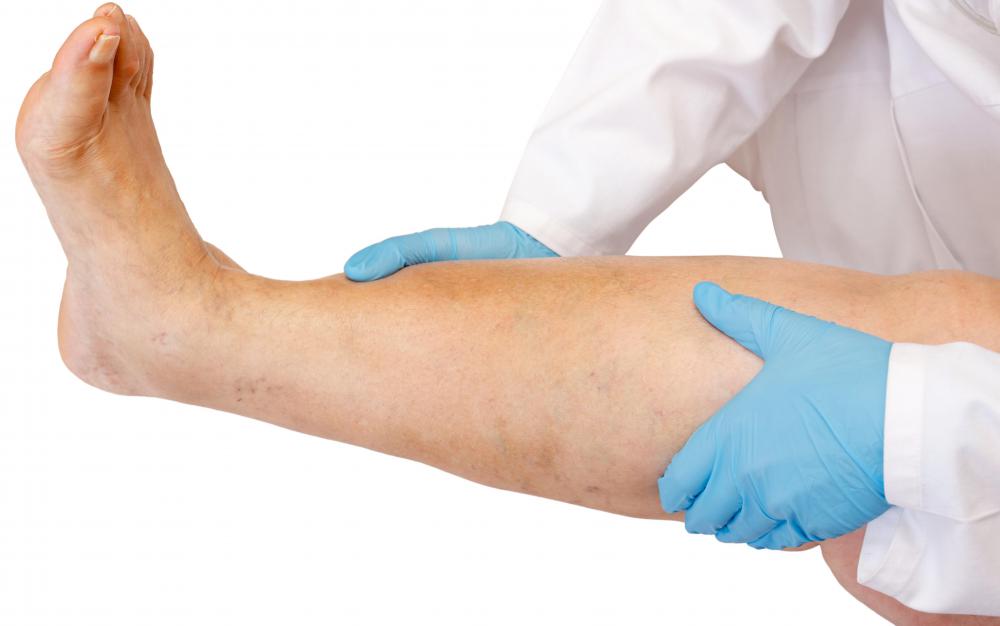At WiseGEEK, we're committed to delivering accurate, trustworthy information. Our expert-authored content is rigorously fact-checked and sourced from credible authorities. Discover how we uphold the highest standards in providing you with reliable knowledge.
What is Nephrogenic Systemic Fibrosis?
Nephrogenic systemic fibrosis is a very rare connective tissue disorder that affects some people with acute or chronic kidney disease. The exact causes are not well understood, but there appears to be a causal link between exposure to the element gadolinium and the onset of symptoms. People who have the disorder typically develop patches of hard, tight, discolored skin as well as joint pain and muscle weakness following dialysis treatments for their kidney problems. Nephrogenic systemic fibrosis can be debilitating as skin and joints become very stiff. There are no reliable cures for the condition, but ultraviolet light therapy and topical creams can help relieve symptoms in some patients.
Gadolinium is commonly used as a traceable dye for diagnostic imaging scans. Fluorescent gadolinium-based contrast agents (GBCAs) are used in many different types of magnetic resonance imaging scans, including angiography, to help radiologists track the flow of blood through vessels and organs. Doctors are not exactly sure how GBCAs influence nephrogenic systemic fibrosis, but the correlation is very well documented. The most likely explanation is that gadolinium stimulates the activity of latent, immature connective tissue cells called fibrocytes. When fibrocytes become active, they enter blood circulation and trigger adverse responses in connective tissue throughout the body.

A person who has nephrogenic systemic fibrosis may experience a range of symptoms. Patches of skin on the abdomen, chest, back, or extremities can gradually harden and thicken over time. Patches tend to become dark red and cause constant itching and burning sensations. As deeper connective tissue is affected, major joints can become stiff, swollen, and very painful. Some people have difficulties bending and straightening their hips, knees, elbows, and fingers.

Muscle weakness combined with joint problems can also make it impossible to walk. Many people are confined to beds or wheelchairs as their symptoms progressively worsen. Potentially fatal complications can arise if fibrosis spreads to the kidneys, liver, heart, or other major organ systems in the body.
A specialist can diagnose nephrogenic systemic fibrosis by evaluating physical symptoms and reviewing the patient's history of dialysis procedures and imaging tests. A skin biopsy may be collected from a patch of affected skin to confirm the diagnosis. Since the condition cannot be reversed, treatment efforts are mainly targeted at alleviating symptoms. There is some clinical evidence supporting the benefits of light therapy in softening the skin and healing tough patches, but the true effectiveness of such procedures has not been verified. Most patients are given topical creams to relieve itching and continue to receive treatment for their kidney disorders in hopes that symptoms will eventually resolve.
AS FEATURED ON:
AS FEATURED ON:
















Discuss this Article
Post your comments